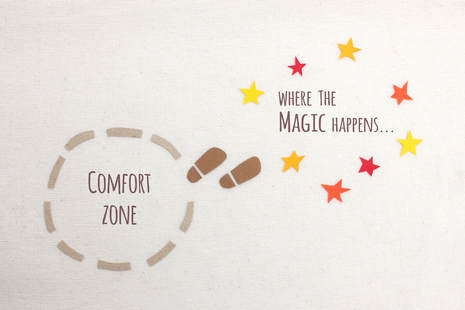|
Being in your comfort zone isn’t a bad thing, provided that you are able to move out of it when advantageous. Moving outside of your comfort zone isn’t always necessary, but sometimes it can allow you to see or take advantage of new opportunities. Sometimes it can be hard to tell when you are just resting in your comfort zone and when you are stuck there. 1. You Pass Up Opportunities If opportunities for career advancement keep passing you by, it could mean that you are stuck in your comfort zone. Being comfortable in your career can be a nice feeling, but it’s also natural to want to move up in your career path. Unless you’re working at your dream job, chances are your current position was meant to be a stepping stone to something bigger. If that’s the case and you have lost sight of that goal, it could be because you’ve become complacent and have stopped testing the limits of your comfort zone. 2. You Have A Fixed Routine It’s normal to have a routine, but if yours is identical from week to week or day to day and deviating from that routine unsettles you, it could be that you have created your routines in order to avoid leaving your comfort zone. The good news is that gradually deviating from a routine can be a good way to work on expanding your comfort zone. 3. You Avoid Meeting New PeopleBecause everyone is different, pretty much everyone that you spend time with can push the boundaries of your comfort zone. Avoiding new people can be a way of preserving your comfort zone. If the threat to your comfort zone is so great that you avoid meeting new people to save it, you are likely to become increasingly entrenched in your comfort zone and more likely to continue to pass up opportunities to meet new people and try new things. Meeting new people isn't important just because it can be fun and enlightening, it is also important because most jobs require you to meet new people, whether it's customers, representatives of other companies, or even just people from other departments. Even if you don't have a job, you likely need to interact with healthcare providers, service providers, and other people from time to time. 4. You Avoid Trying New Things For most people, there are activities that they know that they would never try because they are dangerous activities that are unnecessary, like skydiving or bungie jumping. If you feel the same about such things as going on a plane or going to a big city, which are things that you are much more likely to do in order to take advantage of practical, real world opportunities, then the boundaries of your comfort zone could be holding you back. 5. You Don’t Like Going Outside For some people, staying within their comfort zone becomes so important that they are reluctant to leave their homes. There's nothing wrong with enjoying being in your home and spending time there, but if it's difficult for you to leave your because you are easily shaken by new or awkward experiences, you should consider expanding your comfort zone. There are a lot of resources online and in most communities that can help people with this kind of problem. Consider calling a local crisis or support hotline for sensitive and expert advice specific to your situation. People from these kinds of organizations are also more likely to make house-calls than your primary care provider or a therapist. We all have to learn how to be comfortable with being uncomfortable. But we rarely do because it’s so much easier to seek what’s familiar and safe. When you befriend your unease, you empower yourself with one of the most essential survival skills you can have. It doesn’t come naturally, and it can be a bit overwhelming, but it’s so worth it.  If you're sick and tired of feeling stuck and you're looking for a safe space to learn more about integrating mind, body and spirit to improve your health and happiness, then click here to join my facebook group.
1 Comment
|
Archives
November 2022
Categories
All
|

 RSS Feed
RSS Feed